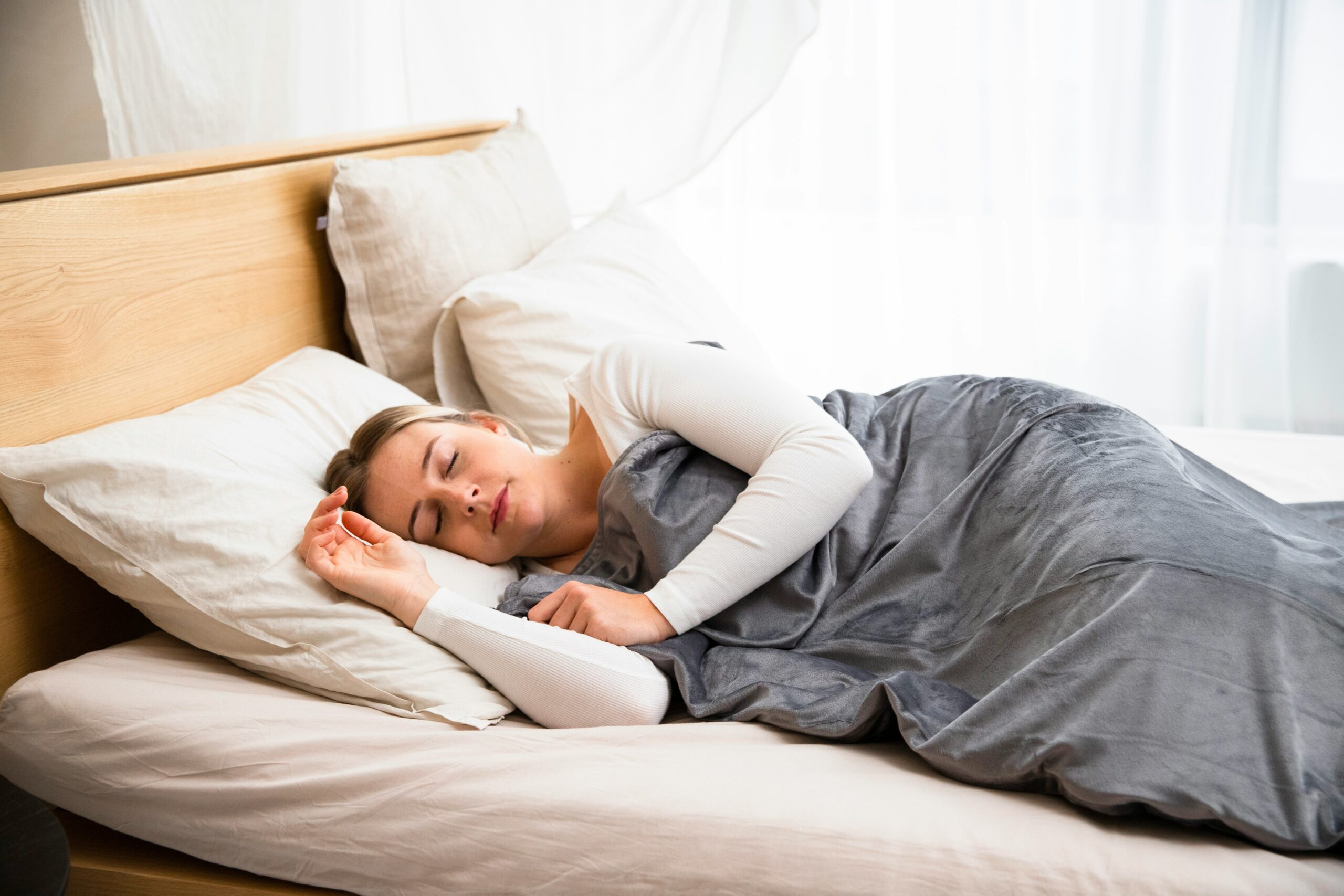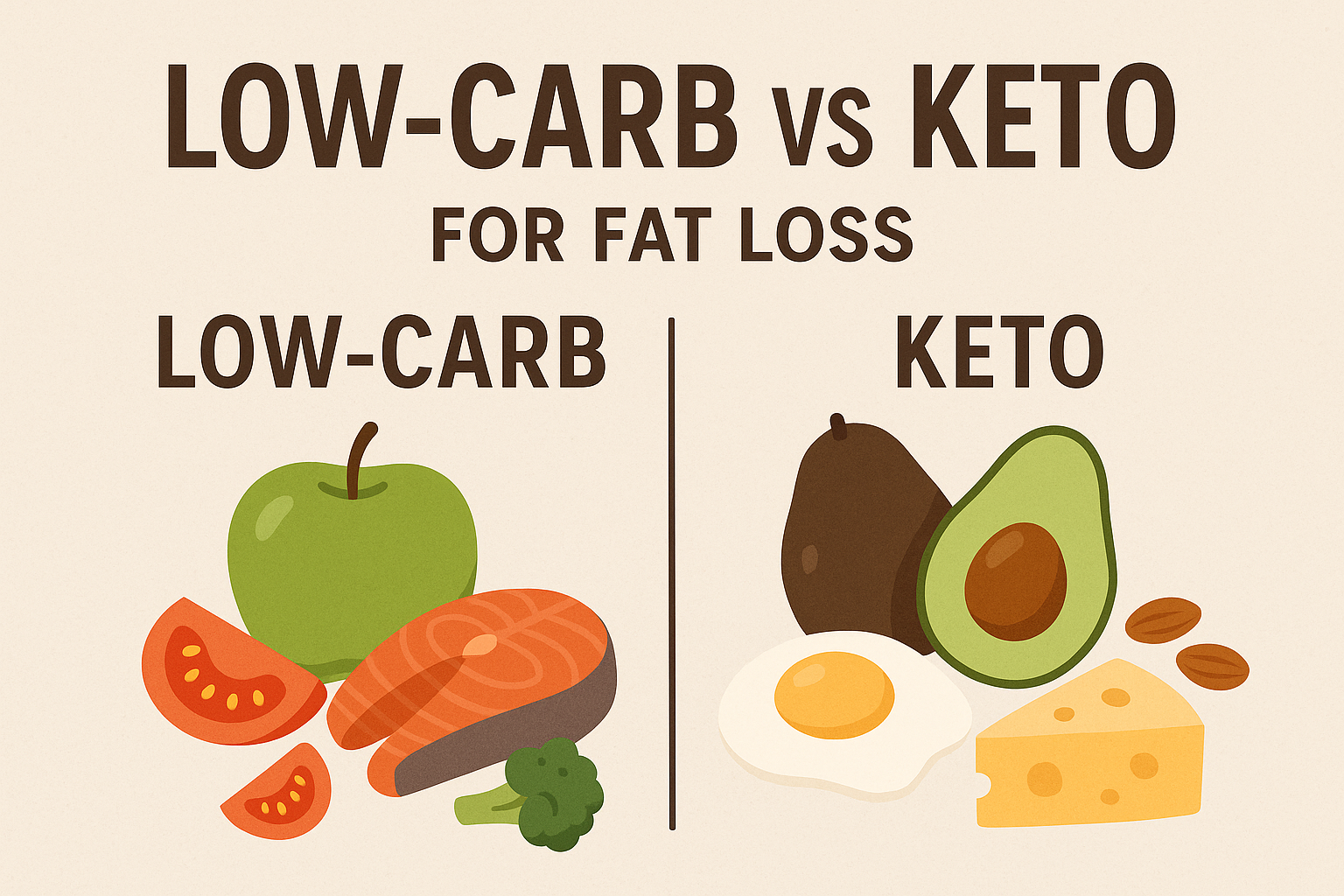When it comes to losing fat, most people focus on diet and exercise. But there’s a powerful, often-overlooked factor that plays a huge role in weight loss — quality sleep. Believe it or not, your body burns fat and regulates hormones more efficiently when you’re getting proper rest.
In this detailed guide, you’ll learn exactly how sleep affects fat loss and discover science-backed tips to improve your sleep — and results — naturally.
🧠 Why Sleep Matters for Fat Loss
Sleep is more than rest — it’s a key player in how your body processes energy, recovers from workouts, and controls hunger. When you don’t get enough sleep, your body goes into “survival mode,” storing fat and triggering cravings.
Here’s how:
1. Hormonal Imbalance
Lack of sleep disrupts your hunger-regulating hormones:
-
Ghrelin: Increases when you’re sleep-deprived, making you hungrier.
-
Leptin: Decreases with poor sleep, reducing your sense of fullness.
This combo makes it hard to say “no” to junk food and easy to overeat.
2. Cortisol Spikes
Sleep deprivation raises cortisol — the stress hormone. High cortisol levels encourage belly fat storage and make it harder to recover from workouts.
3. Lower Insulin Sensitivity
Without enough rest, your body struggles to use insulin properly. This can cause more sugar to be stored as fat rather than used for energy.
4. Muscle Loss Risk
Your body repairs and builds muscle during deep sleep. Poor sleep slows this process, and since muscle helps burn calories even at rest, less muscle = slower fat loss.
😴 How Much Sleep Do You Really Need?
The average adult needs 7 to 9 hours of quality sleep per night for optimal health and fat burning. If you’re consistently getting less than 6 hours, your fat-loss efforts may be working against you.
And remember — quality matters just as much as quantity.
🌙 Top 10 Best Sleep Tips for Fat Loss
1. Stick to a Consistent Sleep Schedule
Go to bed and wake up at the same time every day, including weekends. This helps reset your internal body clock (circadian rhythm), making it easier to fall asleep and wake up refreshed.
2. Create a Relaxing Night Routine
Wind down at least 30–60 minutes before bed. Read a book, stretch, or drink herbal tea. Avoid work and stress-related activities close to bedtime.
3. Limit Screen Time Before Bed
Blue light from phones, TVs, and tablets blocks melatonin production — the hormone that helps you sleep. Avoid screens at least one hour before bed, or use blue-light filters.
4. Keep Your Bedroom Cool, Dark, and Quiet
Your body sleeps best at cooler temperatures (around 65–68°F). Use blackout curtains, turn off electronics, and consider white noise or calming music to block out disturbances.
5. Avoid Caffeine and Alcohol in the Evening
-
Caffeine stays in your system for up to 6–8 hours. Avoid after 2 PM.
-
Alcohol may help you fall asleep initially but leads to restless, low-quality sleep.
6. Finish Eating 2–3 Hours Before Bed
A heavy dinner right before sleep can disrupt digestion. Choose a light, protein-rich dinner and avoid sugary or fried foods at night.
7. Exercise Regularly — But Not Too Late
Physical activity helps improve sleep, but intense workouts too close to bedtime can keep you awake. Aim for morning or afternoon workouts for better results.
8. Try Sleep-Supporting Foods and Herbs
-
Magnesium-rich foods (spinach, almonds)
-
Chamomile tea
-
Bananas, walnuts (contain tryptophan)
-
Tart cherry juice (boosts melatonin)
9. Manage Stress During the Day
Chronic stress = poor sleep = more fat storage. Try:
-
Meditation
-
Deep breathing
-
Journaling
-
Yoga
10. Keep Electronics Out of the Bedroom
Make your bedroom a place for rest only. Avoid working, scrolling, or watching TV in bed. Use an old-school alarm clock if needed.
🔁 How Sleep Helps Reduce Cravings
Poor sleep activates your brain’s reward center, making high-sugar, high-fat foods more appealing. This is why after a bad night’s sleep, you’re more likely to grab donuts instead of oatmeal.
By improving sleep, you’ll:
-
Feel fuller longer
-
Reduce emotional eating
-
Maintain energy without sugary snacks
🕘 Sample Night Routine to Boost Sleep and Fat Loss
| Time | Activity |
|---|---|
| 6:30 PM | Light dinner (grilled chicken + vegetables) |
| 7:30 PM | Gentle walk or yoga |
| 8:00 PM | Dim lights, no screens |
| 8:30 PM | Herbal tea, read or journal |
| 9:30 PM | Deep breathing / gratitude practice |
| 10:00 PM | Lights off, no distractions |
Consistency is key. Stick to a similar schedule daily.
✅ Quick Checklist: Are You Sabotaging Fat Loss With Poor Sleep?
-
☐ Sleeping less than 7 hours?
-
☐ Eating late at night?
-
☐ Scrolling phone before bed?
-
☐ High stress or overthinking at night?
-
☐ Drinking caffeine late in the day?
If you answered yes to any of these, your sleep habits may be slowing your fat loss.
Final Thoughts
Fat loss isn’t just about hitting the gym or counting calories — sleep is your secret weapon. Quality rest supports your metabolism, controls hunger hormones, reduces cravings, and helps your body burn more fat naturally.
If your fat-loss journey feels stuck, don’t just push harder in the gym — start sleeping smarter.
Remember: Progress starts with rest. Start applying even 2–3 tips from this guide tonight and see the difference in your energy, recovery, and results.
💬 “Struggling with sleep and weight loss? Let us help — follow EmpowerFitUSA on Pinterest for daily wellness & fat-loss tips!”










